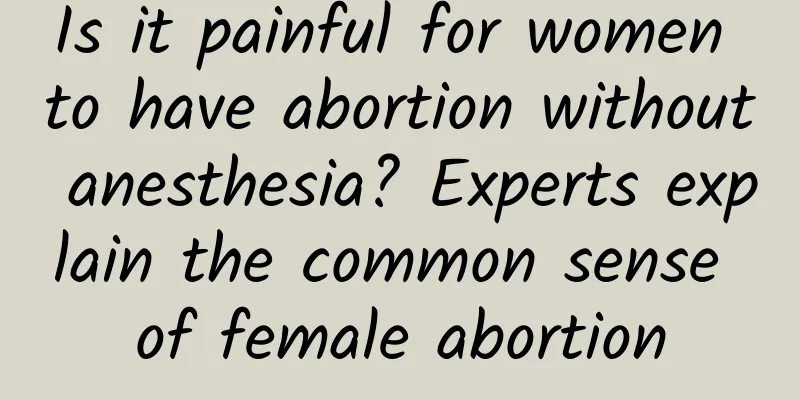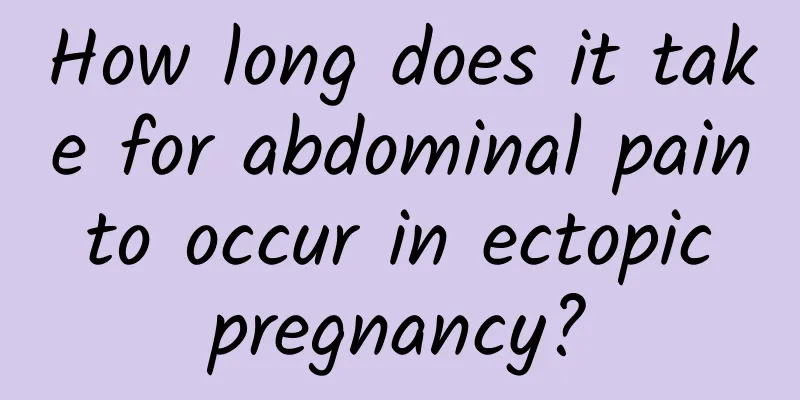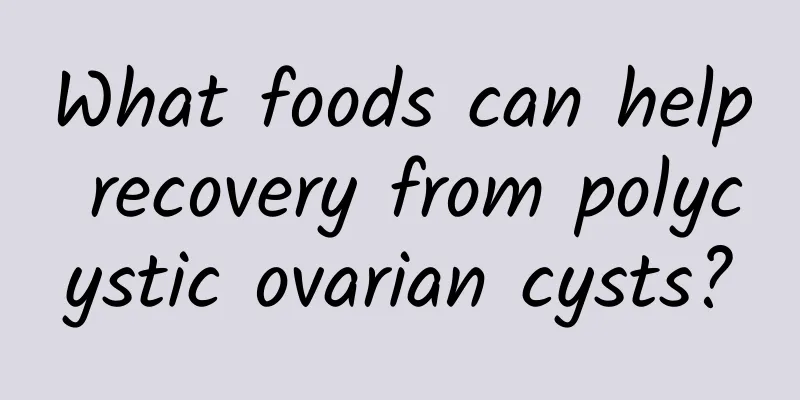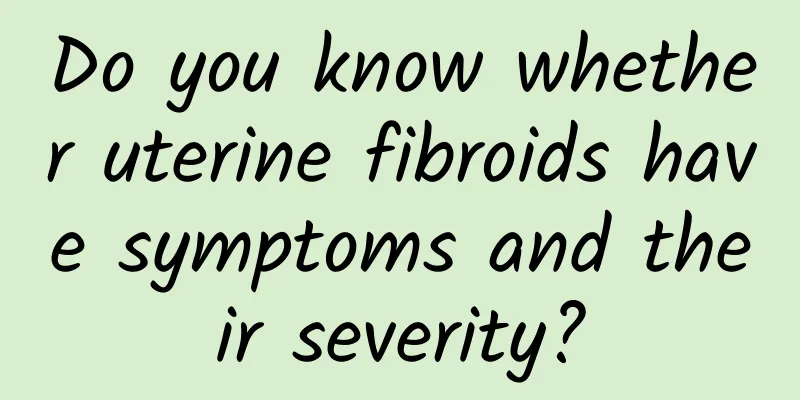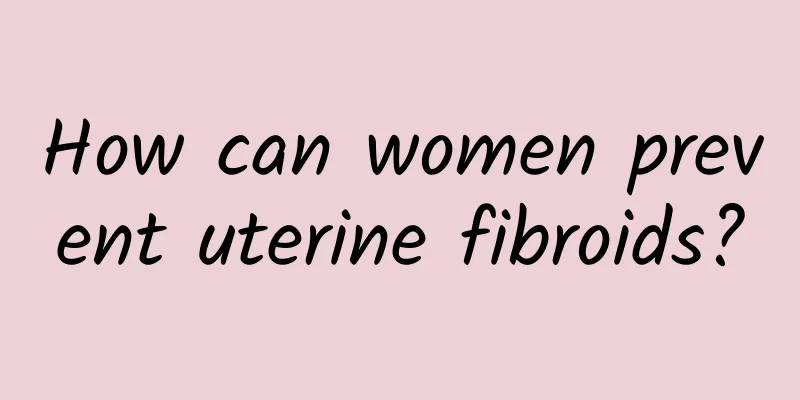What is the difference between cysts and uterine fibroids? Are cysts and uterine fibroids the same?
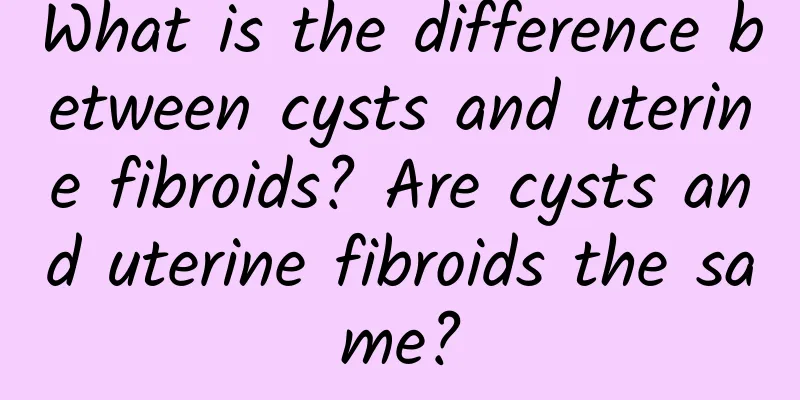
|
What is the difference between cysts and uterine fibroids? This is a question that many women often wonder when facing gynecological diseases. Although cysts and uterine fibroids are both common gynecological diseases, there are some differences in their causes, symptoms, and treatments. This article will focus on the differences between cysts and uterine fibroids. 1. Different causes There are significant differences in the causes of cysts and uterine fibroids. Cysts are usually caused by the accumulation of fluid in the ovaries or other tissues, so they can be divided into functional cysts and non-functional cysts. Functional cysts are usually related to the menstrual cycle and will appear and disappear as the ovaries ovulate. Non-functional cysts are related to factors such as abnormal hormone levels and ruptured ovarian cysts. Uterine fibroids are formed by abnormal growth of muscle tissue on the inner wall of the uterus, and their specific causes are not yet fully understood. 2. Different symptoms There are also some differences in symptoms between cysts and uterine fibroids. Cysts usually do not cause obvious symptoms, especially functional cysts. When the cyst grows larger, non-specific symptoms such as lower abdominal distension and pain, irregular menstruation, and palpable masses may occur. Uterine fibroids are more likely to cause varying degrees of uterine bleeding, menorrhagia, dysmenorrhea, and dyspareunia. Larger fibroids may even compress other organs, leading to problems such as difficulty urinating and constipation. 3. Different treatment methods Cysts and uterine fibroids are also managed differently. Functional cysts can usually be monitored with observation and periodic ultrasounds if they are small and not causing significant symptoms. If a functional cyst ruptures or causes severe discomfort, surgery may be necessary. For non-functional cysts, surgical removal may be necessary depending on the circumstances. The management of uterine fibroids mainly includes medication and surgery. Medication can be used to control symptoms and reduce the size of the fibroids, but it cannot cure the disease. Surgical treatment usually takes into account factors such as the size of the fibroids, the severity of the symptoms, and the patient's age and fertility needs. In summary, there are obvious differences in the causes, symptoms and treatments of cysts and uterine fibroids. Cysts are usually caused by fluid accumulation, while uterine fibroids are abnormal growths of muscle tissue on the inner wall of the uterus. Most cysts do not cause obvious symptoms, while uterine fibroids are often accompanied by varying degrees of bleeding, dysmenorrhea and other symptoms. In terms of treatment, cysts may require surgical removal, while uterine fibroids can be treated with medication or surgery. Therefore, if women experience related symptoms, they should seek medical attention in a timely manner and choose the appropriate treatment plan after professional diagnosis. |
<<: What foods can eliminate uterine fibroids? What foods can eliminate liver cysts?
Recommend
Long-term constipation, intestinal perforation, fecal stones, and inflammation
People often say, "If you have constipation,...
How should women prevent cervicitis? The 6 most effective treatments for female cervicitis
Can I take amoxicillin to reduce inflammation in ...
The cause of vulvar leukoplakia analyzed by Chinese medicine experts
As the number of patients with vulvar leukoplakia...
To prevent cervicitis, we need to grasp some details in life
For female friends, some carelessness in life may...
What does uterine fibroids look like? What are the dangers of uterine fibroids?
Many female friends suffer from uterine fibroids,...
What are the main symptoms of vaginitis?
Vaginitis has the highest incidence rate among gy...
Detailed analysis of the causes of vaginitis
Regarding the causes of vaginitis in life, expert...
The life expectancy of men and women is very different, and their nutritional needs are different! Nutritionist Zhao Hanying: 5 golden foods that men must eat
The life expectancy of men and women is very diff...
What are the dangers and sequelae of Bartholinitis?
Bartholinitis may cause pain, fever, suppuration,...
What are the emergency measures for ectopic pregnancy
Ectopic pregnancy is a very dangerous gynecologic...
Pathogenesis of Trichomonas vaginitis
The pathogen of trichomoniasis vaginitis is Trich...
What are the symptoms of vaginitis?
Vaginitis is a common gynecological infectious di...
Experts tell you about the different classifications and stages of vulvar leukoplakia!
Patients with hyperplastic and atrophic vulvar le...
What causes dysmenorrhea?
Recently, the number of women suffering from dysm...
Effective prevention of cervical erosion is crucial
Is it crucial to effectively prevent cervical ero...
